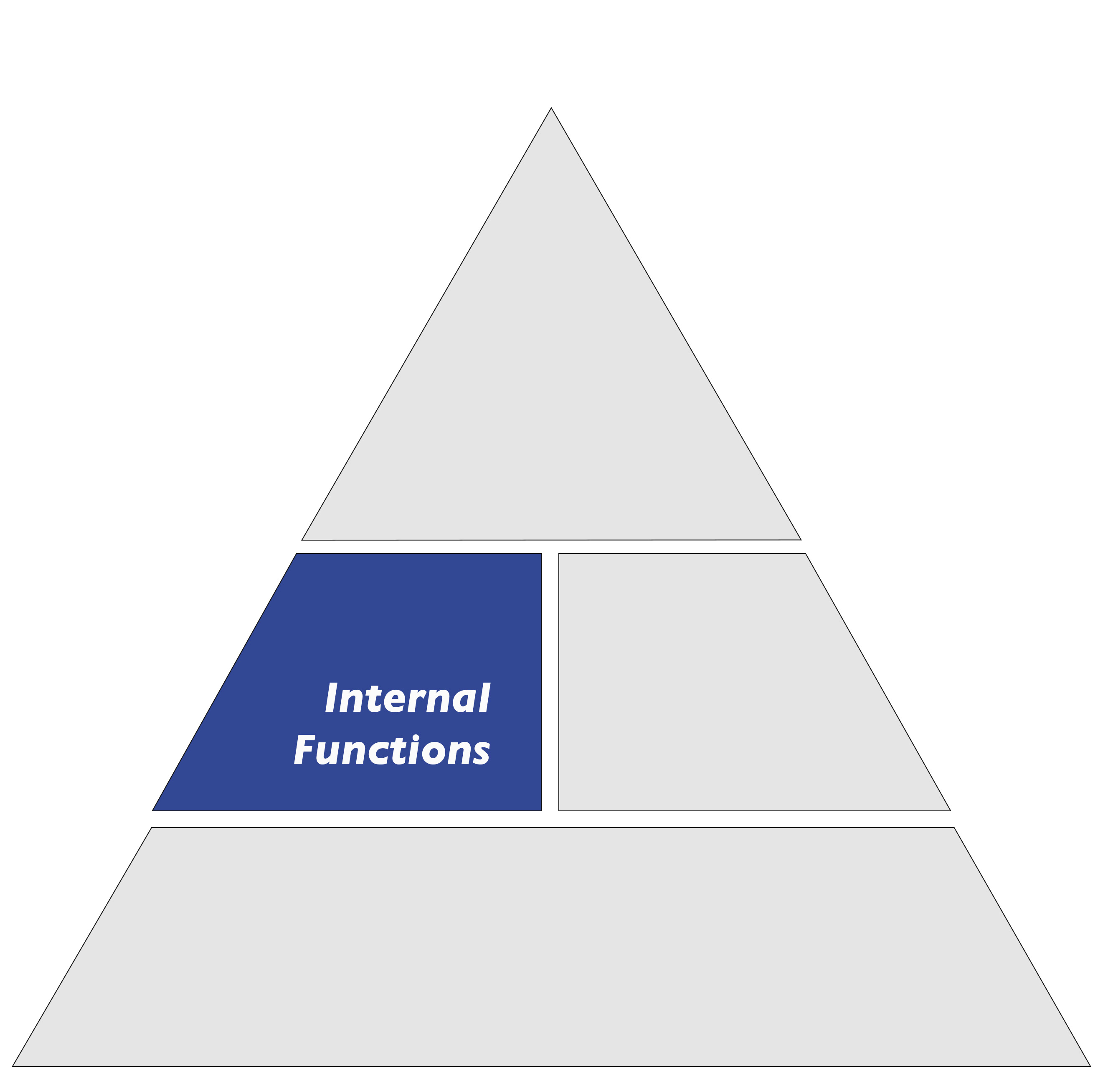 Internal Functions
Internal Functions
Organizational capacity primarily concerns the inner workings of a group. Researchers and other writers have long explored the question of what makes a good group tick. For our purposes, we have identified five practices that build off of membership capacity and help groups accomplish more through getting volunteers (and occasionally staff) to work together. These include:
Policies: Efforts are made to record, follow, discuss and improve how the organization conducts all of its business (financial, volunteer / staff management, public relations, etc.).
Defined Roles: Volunteer and / or staff roles are clearly defined within the organization, including clear expectations for leadership and a timeline setting the commitment for different tasks.
Conflict Management: There is a known set of actions that addresses what steps will be taken to resolve disputes if there is a conflict of interest or disagreement between members of the organization.
Media Management / Outreach: A communication plan is in place that designates spokespersons for the organization and a plan for regularly updating local media about efforts of the organization.
Access to Advisors: A group of technical experts, community leaders, and others who can speak to water management issues are identified and have agreed to be available to support the organization.
One way organizations often look to assess and build their organizational capacity is through strategic planning. A good strategic plan will summarize (among other things) the group's intentions to follow through on the five aspects of organizational capacity listed above.
We are now offering two free online courses, through the University of Wisconsin-Stevens Point, to assist individuals in lake associations and lake districts in working effectively on lake issues. The content is broken up into readings, videos, and quizzes that will help you digest and check your knowledge throughout the course. Upon finishing the course, you will receive a Certificate of Completion.
Goal: to provide educational resources for individuals who are interested or already involved in their lake organization to help guide them on a path to increased organizational capacity.
Time commitment: 3-5 hours
Content: includes readings, videos, and quizzes to check your knowledge.
Cost: $0


You will have 90 days to complete the course once you enroll.
If you have any questions, please reach out to Sara Windjue at swindjue@uwsp.edu.
This toolbox will include example documents for you to use with your organization. It is a work in progress so check back often.
Position Descriptions
Having position descriptions help formalize roles and clarify expectations.
 Example Position Description - Provided by
BoardSource
Example Position Description - Provided by
BoardSource
Other:
- Marketing/Communications position (coming soon)
Board Service Agreement
 Example Board Service Agreement
Example Board Service Agreement - Provided by
BoardSource
Skills Gap Analysis
